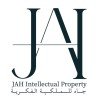Recent policy and procedural changes in the evolving IP landscapes in the MENA region
31 March 2025

Recent significant developments in the intellectual property landscape within the Middle East and North Africa (MENA) region underscore the dynamic nature of IP law in the region. Jehad E. Hasan highlights the changes of which businesses and legal professionals should remain informed.
There have been significant developments recently in the intellectual property landscape within the Middle East and North Africa (MENA) region. These developments encompass a range of policy reforms and procedural updates, necessitating that companies maintain a comprehensive understanding of these evolving legal frameworks.
Qatar
Qatar has implemented several notable changes to its IP law. A new Grievance Committee has been established to enhance the transparency and fairness of patent application appeals. The establishment of this committee is intended to foster greater confidence among inventors and businesses, thereby incentivizing increased investment in research and development activities.
In addition, new requirements have been promulgated concerning powers of attorney. These requirements include Ministry of Foreign Affairs (MoFA) certification and certified Arabic translation, aimed at ensuring proper legal representation and safeguarding the integrity of IP rights. These measures are designed to provide a robust framework for legal representation in IP matters.
Qatar has also acceded to the Madrid Protocol. This accession streamlines the process for international trademark filings, particularly for businesses operating across multiple jurisdictions. The streamlined process is expected to reduce administrative burdens and enhance the global competitiveness of Qatari businesses.
The Ministry of Commerce and Industry (MOCI) has also implemented substantial fee reductions for various business services, including those related to patents and designs. This reduction in fees aims to make IP protection more accessible and to encourage innovation within the Qatari market.
Collectively, these changes reflect Qatar’s commitment to strengthening its IP framework and fostering an environment conducive to innovation. By establishing a more transparent, efficient, and affordable IP system, Qatar is strategically positioning itself as a hub for intellectual property and a key participant in the global knowledge economy.
Sudan
The Trademarks Office in Sudan has resumed normal trademark operations following a 10-month closure. The office is now accepting new applications, renewals, and post-registration recordals. The resumption of these operations signals the Sudanese government's commitment to upholding intellectual property rights during a challenging period. This development is intended to provide a positive signal to both domestic and international investors, encouraging investment in the Sudanese economy. The ability of businesses to safeguard their intellectual assets is crucial for contributing to economic growth and job creation. While the initial focus is on accepting new applications, renewals, and post-registration recordals, the resumption of other procedures, such as oppositions and cancellations, will follow once the Trademarks Office is fully operational.
Libya
Libya now follows specific trademark filing procedures. Powers of attorney are valid for a period of one year, necessitating timely renewals. This requirement may potentially increase the administrative costs and complexity for trademark owners, particularly those operating in multiple jurisdictions. The requirement for foreign-legalized documents to be attested by the Ministry of Foreign Affairs introduces an additional layer of bureaucracy to the trademark filing process. This may lead to potential delays and increased costs for foreign applicants seeking trademark protection in Libya.
Further, the requirement to submit a commercial register extract for new trademark applications is aimed at ensuring the authenticity and legitimacy of applicants, which could enhance the overall quality of trademarks registered in Libya. However, this additional requirement may increase the administrative burden on applicants, especially foreign companies.
Also, a recent decision led to the cancellation of all published trademarks that were not renewed within the prescribed legal deadlines. This action is likely to result in a more streamlined trademark register and reduce the number of dormant or inactive registrations, potentially freeing up trademarks for legitimate use.
Syria
Syria has simplified trademark application procedures by revoking the prior requirement of obtaining security approval from the Ministry of Interior for powers of attorney. The elimination of this requirement is expected to significantly impact the IP landscape in Syria by streamlining trademark application procedures and fostering a more conducive environment for intellectual property protection and commercial activity. This change is likely to reduce administrative burdens and delays associated with obtaining necessary approvals, ultimately leading to a more efficient and expeditious trademark registration process.
By simplifying the application process, this reform could encourage greater participation in the trademark system, both from domestic and foreign entities, thereby promoting innovation and investment in the Syrian market. The removal of this bureaucratic obstacle could enhance the attractiveness of Syria as a destination for foreign businesses seeking to protect their intellectual property rights. However, the full impact of this reform will depend on several factors, including the overall stability of the economic environment, the effectiveness of implementation by relevant authorities, and the availability of clear and accessible information regarding the revised procedures. While this change represents a positive step towards improving the IP landscape in Syria, continued efforts to modernize and strengthen the country's intellectual property framework will be crucial for attracting foreign investment, stimulating innovation, and fostering economic growth.
Yemen
Yemen has witnessed an increase in official fees for trademark services in Aden, while the Sanaa Trademark Office has adopted the 12th Edition of the Nice Classification. Significantly, the allowable number of goods or services per trademark application has been eliminated, simplifying the process and reducing costs. The Yemeni Trademark Office has also introduced electronic filing for trademarks, enhancing the efficiency of trademark filing procedures.
These recent changes have the potential to significantly impact the intellectual property landscape in Yemen. The adoption of the 12th Edition of the Nice Classification aligns Yemen with international standards for classifying goods and services, thereby improving clarity and consistency in trademark examination and registration. This harmonization should facilitate easier international trademark registration and protection for businesses operating in Yemen.
The elimination of the limit on the number of goods or services per trademark application is a notable development. Previously, applicants were restricted in the scope of protection obtainable with a single application, potentially leading to multiple filings and increased costs. This change simplifies the application process and reduces costs for businesses, encouraging greater trademark protection and fostering a more favorable environment for innovation and investment.
On the other hand, the introduction of electronic filing for trademarks represents a significant step towards modernizing the Yemeni trademark system. Electronic filing streamlines the application process, reduces administrative burdens, and enhances efficiency for both applicants and the trademark office. This modernization should contribute to faster processing times and improved overall service delivery, making it easier for businesses to secure and maintain trademark rights in Yemen. However, the successful implementation and enforcement of these changes will depend on the capacity of the trademark office to effectively administer the new procedures. Additionally, awareness-raising efforts will be crucial to ensure that businesses and the public are informed about these changes and can fully utilize the improved trademark filing requirements.
Overall, these recent changes represent positive developments for the intellectual property landscape in Yemen. Nevertheless, continued efforts to address the challenges facing the country will be essential to fully realize the benefits of these reforms.
Saudi Arabia
Saudi Arabia has extended the duration of protection for registered industrial designs from 10 to 15 years, providing enhanced incentives for innovation and creativity within the industrial design sector. This extension aligns with international best practices and aims to foster a more robust and innovative design sector. The longer protection period provides stronger incentives for designers and businesses to invest in research and development, ultimately leading to increased competitiveness and economic growth. By aligning its IP regime with international standards, Saudi Arabia is demonstrating its commitment to protecting intellectual property rights and encouraging innovation.
Lebanon
Conversely, Lebanon has reduced the validity period for trademark registrations from 15 to 10 years. This decision may have unintended consequences, potentially weakening brand protection and discouraging investment in brand development. Trademark owners will need to adapt their strategies to account for the shorter protection period, potentially increasing costs associated with trademark renewal. This change may also create uncertainty and complexity for businesses operating in Lebanon, particularly those with strong brand equity.
Bahrain
Bahrain has entered into Patent Prosecution Highway (PPH) pilot programs with the China National Intellectual Property Administration (CNIPA), the European Patent Office (EPO) and the Korean Intellectual Property Office (KIPO), aimed at expediting patent examination procedures and fostering innovation. By streamlining patent examination procedures, the PPH programs will expedite the process of obtaining patent protection for innovative technologies. This accelerated timeline will incentivize inventors and businesses to invest more heavily in research and development, fostering a more dynamic and competitive innovation ecosystem. Furthermore, the reduced administrative burden associated with the PPH programs will lower the cost of obtaining patent protection, making it more accessible to smaller businesses and independent inventors. The PPH programs will also enhance the quality of patent examination. By leveraging the prior examination results from partner offices, patent examiners will be able to focus their efforts on more complex issues, ensuring a more thorough and rigorous evaluation of the patentability of inventions. This increased scrutiny will lead to the issuance of stronger and more robust patents, providing greater legal certainty and protection for patent holders.
Conclusion
These developments underscore the dynamic and evolving nature of IP law in the MENA region. It is imperative that businesses and legal professionals remain informed of these changes to effectively navigate the complexities of IP protection in this region.






